On October 11, 2023, an unprecedented military conference was held in Virginia, USA, bringing together over 800 senior military officers from around the country. This meeting should have been a crucial one to discuss major military deployments and strategic directions, but Trump's proposal caught everyone off guard: he proposed reactivating long-decommissioned battleships.

This proposal shocked the generals present, and a subdued silence permeated the meeting. Why did these experienced and battle-hardened military leaders react in this way? What was the hidden meaning behind this silence?
Imagine this: this meeting was supposed to discuss modern weapons and strategic adjustments, but instead, a shocking proposal emerged: to return battleships, nearly retired for decades, to combat. There was no applause; the room was utterly silent. This silence wasn't due to shock, but rather to the sheer absurdity of the proposal itself.
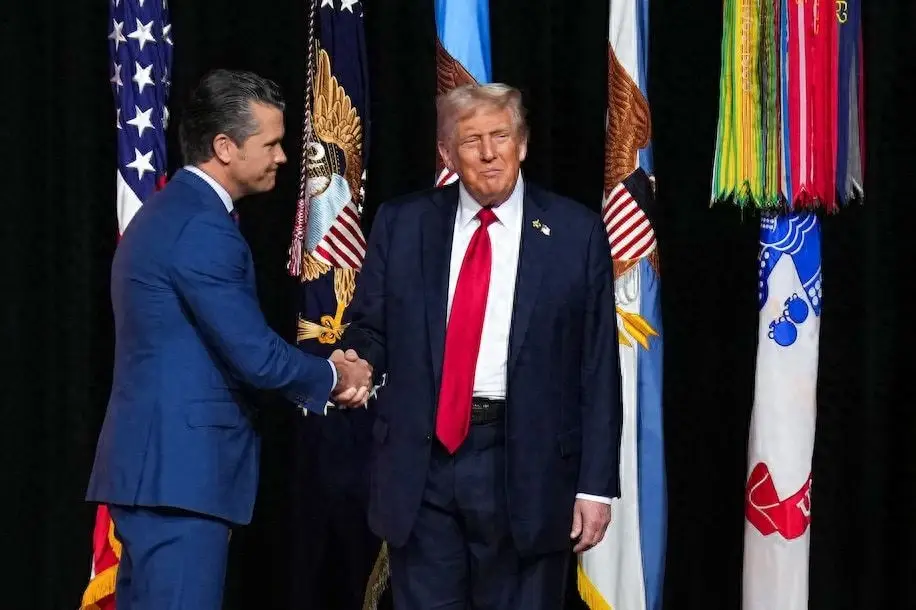
Battleships were once the "behemoths of the sea" during World War II. However, technological advancements marked the end of the battleship era even after the Battle of Midway. Aircraft carriers could destroy these massive warships from hundreds of kilometers away, and the massive artillery of World War II, no matter how powerful, was no threat to the enemy. In the 21st century, modern hypersonic missiles can travel thousands of kilometers in minutes, making them impervious to the thick armor of battleships.
Yet, Trump insisted that battleships had unique advantages, even using movie references to justify his position, citing "steel plates are strong and shells are cheap." The generals in the audience knew full well that rebuilding a modern battleship would cost tens of billions of dollars and require thousands of soldiers. If it were sunk, the damage would be unbearable. Moreover, battleships are sitting ducks on modern battlefields, easily destroyed by enemy satellites, reconnaissance systems, and drone swarms.
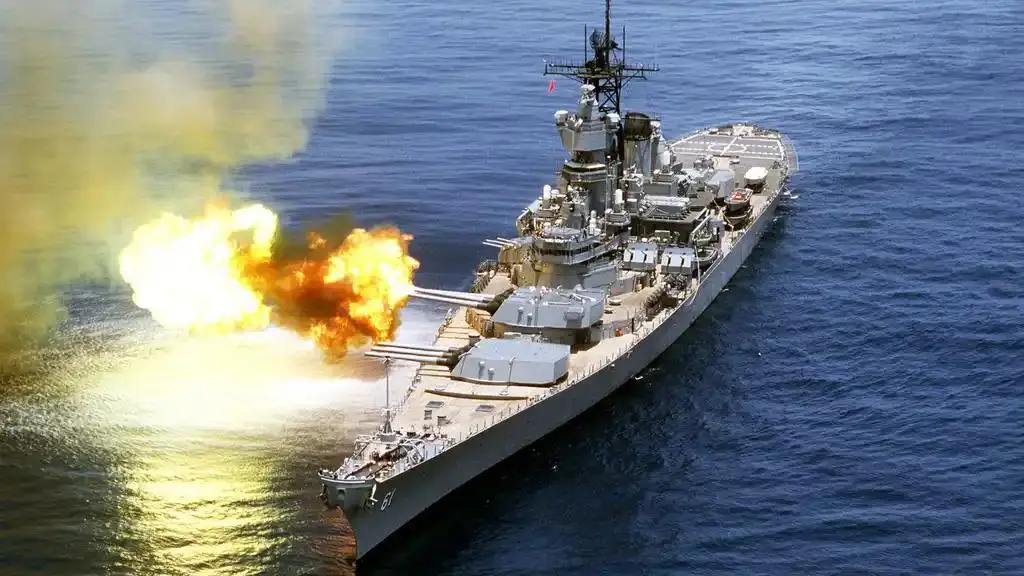
This proposal left the generals speechless—they couldn't openly oppose it, but they also couldn't applaud it. To them, discussions of military strategy should be rigorous and professional, not political games. These experienced officers had personally experienced modern warfare and understood the decisive role of information-based warfare and air superiority. To have them applaud such outdated ideas was an insult to their professionalism.
However, the problem with this meeting went far beyond a single absurd proposal. Throughout the history of the United States, the military has never been involved in politics, and politics should not interfere with the military's professional judgment. As early as 1878, the United States passed the Militia Act, explicitly prohibiting the military from directly participating in domestic law enforcement. This principle has long been considered a cornerstone of the American military system.
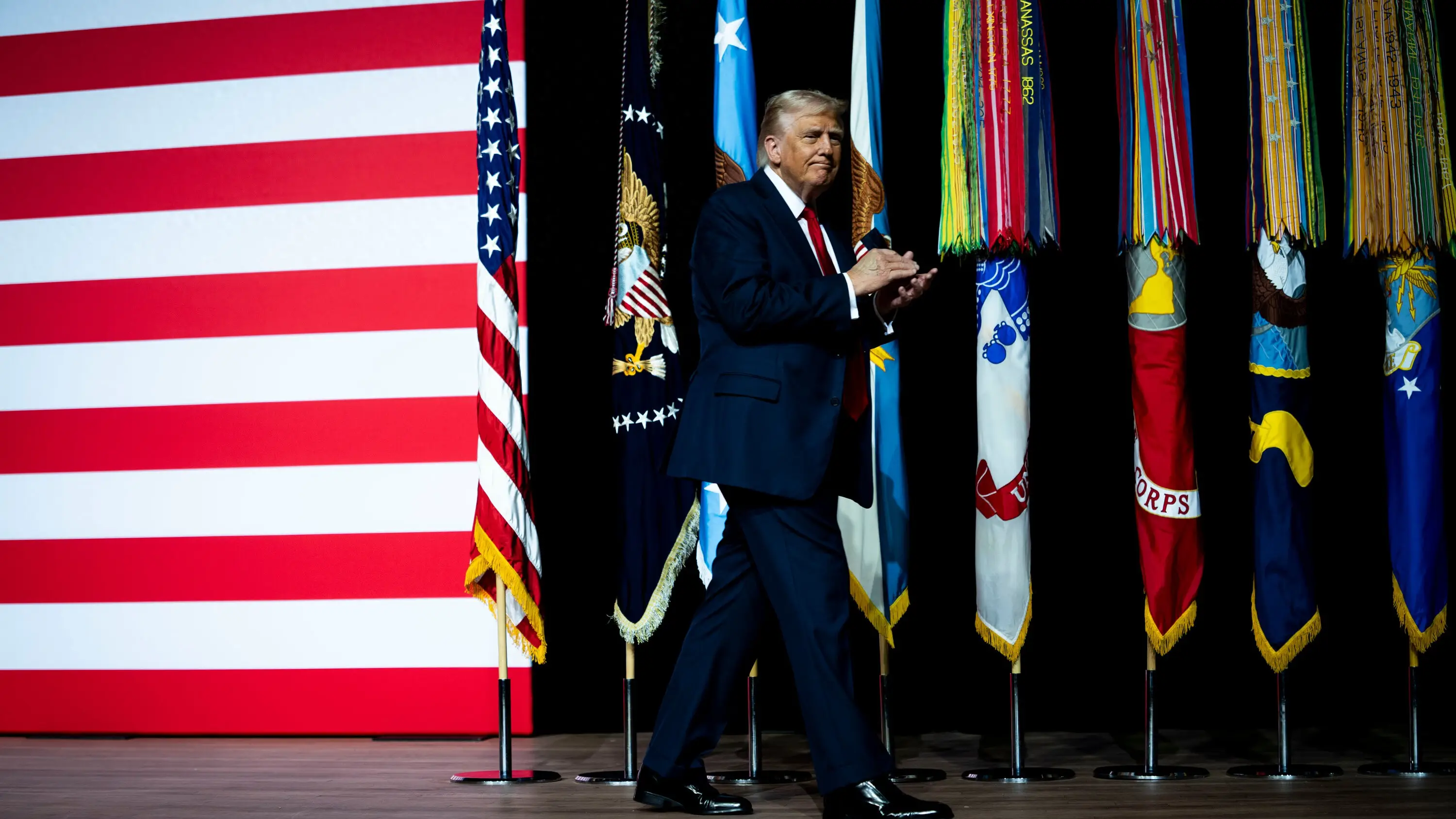
But politics is now heavily intruding into military decision-making. Secretary of Defense Hegseth, who chaired this meeting, lacks extensive military experience himself, yet is commanding the highest-ranking officers. Even more disturbing is the fact that the entire meeting was permeated with political overtones. Eight hundred generals were summoned not to discuss professional matters but to demonstrate loyalty to the president, becoming a tool for political expression.
This phenomenon is extremely rare in American history. Military meetings used to focus on professional issues like tactics, strategy, and equipment, but now the military is forced to choose between professional judgment and political pressure. Choosing professional judgment could lead to accusations of disloyalty, while pandering to political agendas violates their professional ethics.
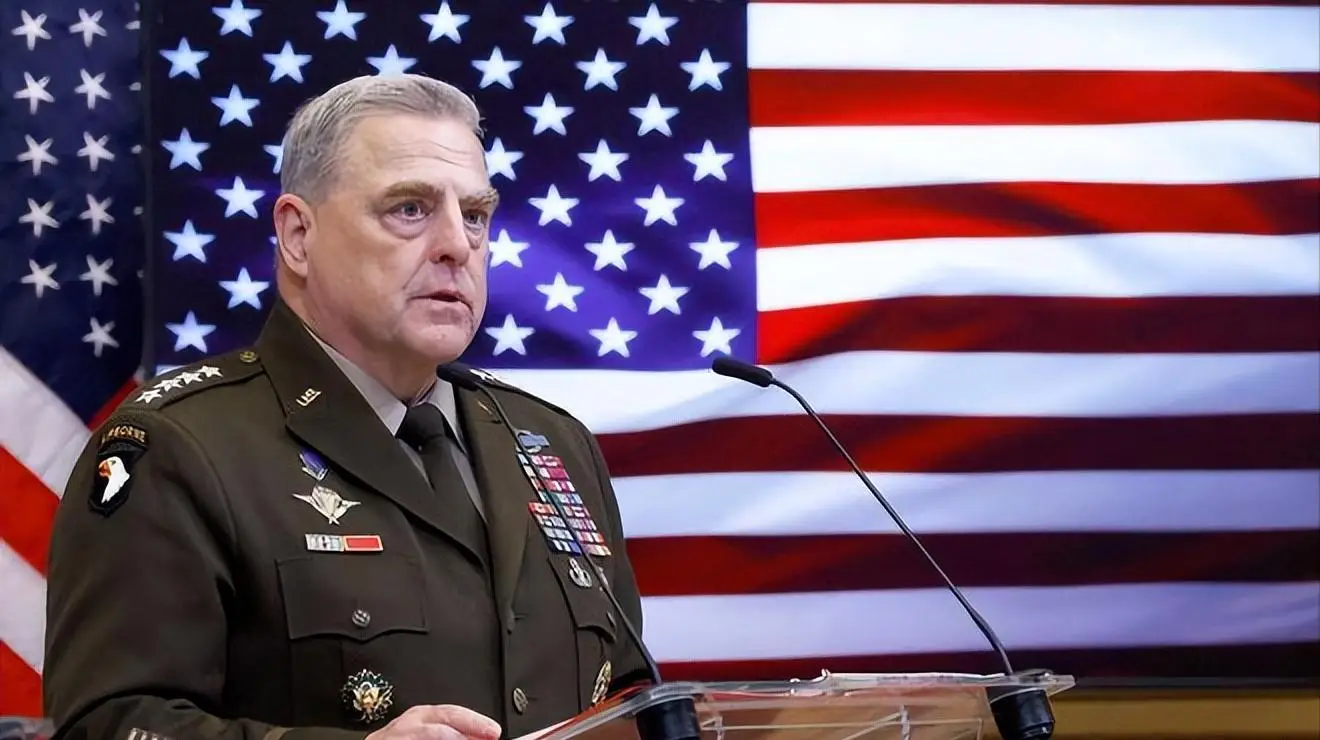
This reflects a deep-seated deterioration in the relationship between politics and the military, and signals that the independence and professionalism of the military are facing serious challenges. A RAND Corporation study indicates that once political interference exceeds a certain level, the military's combat effectiveness and professional capabilities will decline sharply. Historically, countries like the Soviet Union and Iraq have lost their combat effectiveness at critical moments due to overly politicized militaries.
Will the United States repeat its mistakes? When institutional checks and balances fail and professional judgment is replaced by individual will, the foundations of a nation's security begin to shatter.

Trump's battleship proposal actually reflects his personal understanding of a "strong" America. Battleships were once the dominant force at sea, symbolizing American naval might. For Trump, battleships are more than just military equipment; they represent a glorious past, a symbol of his image of American might.
However, the core of modern warfare is no longer the thickness of steel or the power of artillery, but the speed of information flow and the interoperability of systems. Many people, basking in the glory of the past and refusing to acknowledge the changing times, have a mindset known in history as "imperial loss." The late Roman Empire relied heavily on heavily armored legions and ignored the mobile tactics of nomadic peoples, ultimately leading to its collapse. During the Napoleonic era, the French army relied heavily on artillery, resulting in a crushing defeat at Waterloo.
Is the United States repeating these mistakes today?
Even more worryingly, this "imperial loss" mentality is reflected not only in military equipment but also in decision-making mechanisms. When personal emotions and the will to power begin to dominate national decision-making, the nation's entire system and security foundation will gradually collapse.
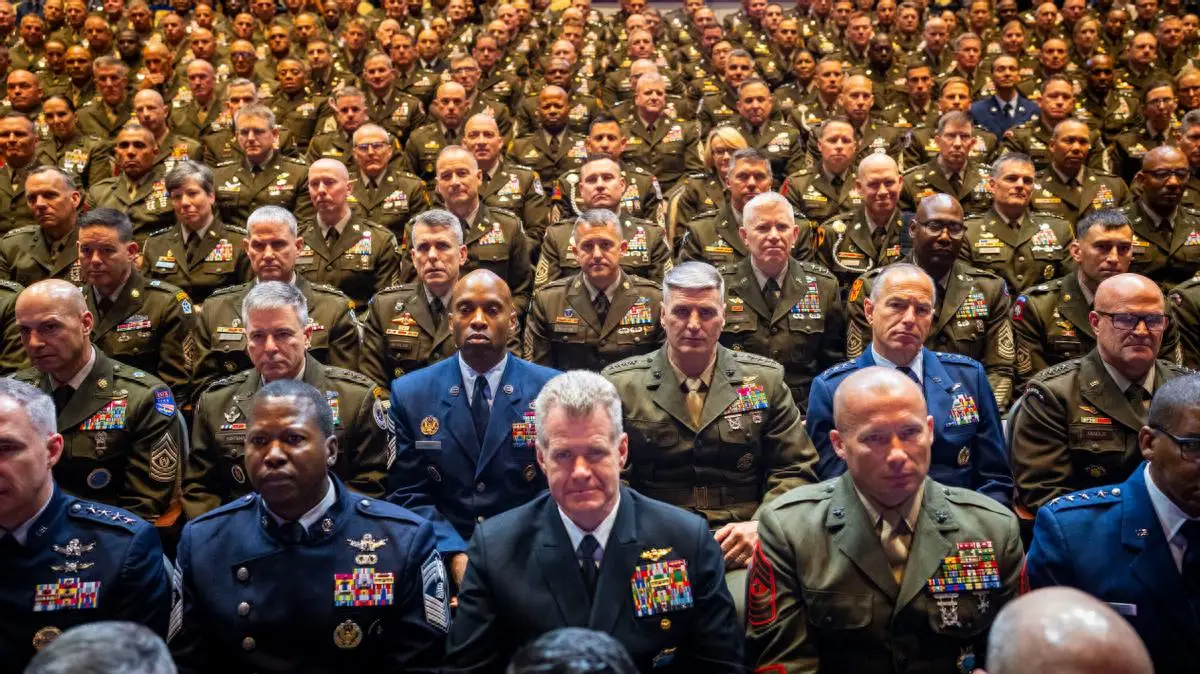
The silence of the over 800 generals present was, in fact, a protest, an institutional protest. It wasn't that they didn't have opinions, but rather that this proposal touched upon their bottom line as military professionals.
However, how long can this silence last? As political pressure intensifies and professional judgment gradually becomes superseded, will more officers still uphold their professional ethics? History shows that a politicized military is doomed to lose combat effectiveness and lead to national decline.
The signal sent by this meeting is far more dangerous than the battleships themselves. It signals the loss of independence in US military decision-making and the comprehensive erosion of military professionalism. The US is currently moving towards politicization, undermining the rationality and independence of military decision-making.
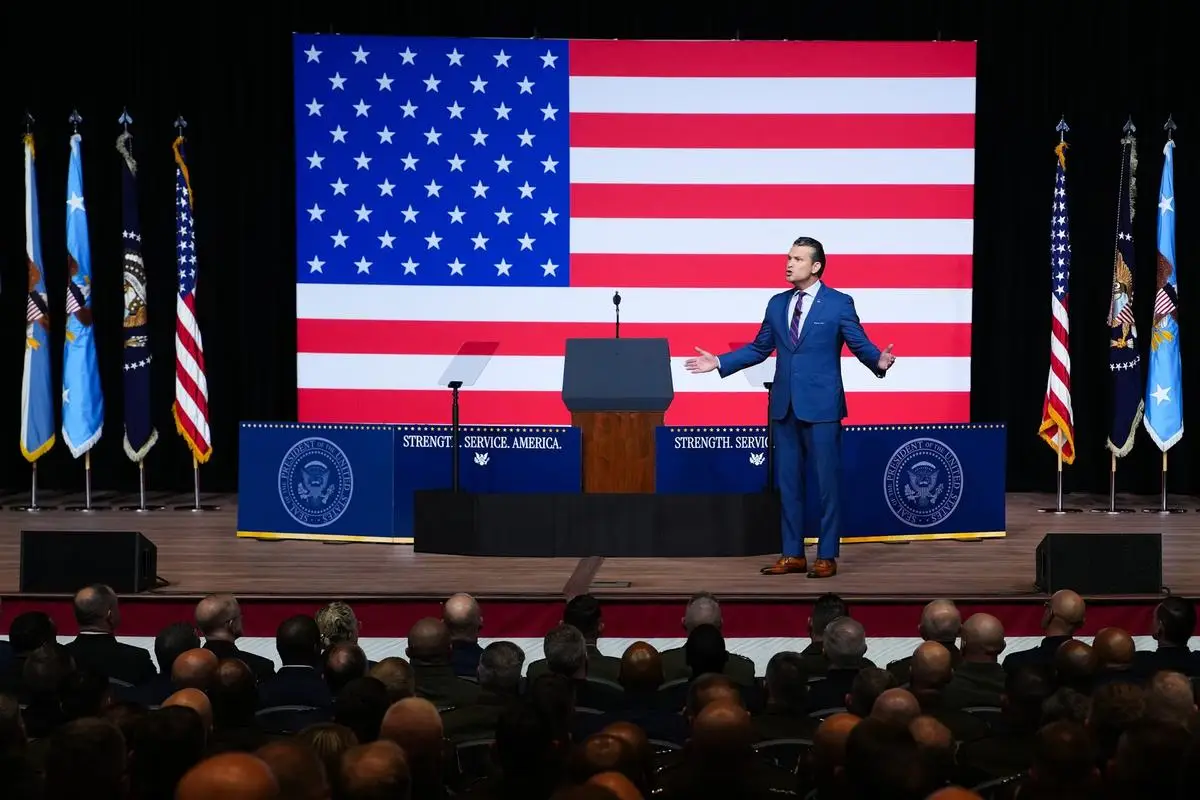
CNN analysis points out that this trend could ultimately undermine the cohesion and combat effectiveness of the US military. Especially when officers are forced to choose between professional ethics and political stance, the military's unity and combat effectiveness will be severely affected. Throughout history, the collapse of every military has begun with internal political divisions.
Thus, the silence of 800 generals may be the US military's final warning—their way of telling us: the military's professional bottom line cannot be breached, and the principles of the system cannot be shaken.

%20--%3e%3c!DOCTYPE%20svg%20PUBLIC%20'-//W3C//DTD%20SVG%201.1//EN'%20'http://www.w3.org/Graphics/SVG/1.1/DTD/svg11.dtd'%3e%3csvg%20version='1.1'%20id='图层_1'%20xmlns='http://www.w3.org/2000/svg'%20xmlns:xlink='http://www.w3.org/1999/xlink'%20x='0px'%20y='0px'%20width='256px'%20height='256px'%20viewBox='0%200%20256%20256'%20enable-background='new%200%200%20256%20256'%20xml:space='preserve'%3e%3cpath%20fill='%23FFFFFF'%20d='M194.597,24.009h35.292l-77.094,88.082l90.697,119.881h-71.021l-55.607-72.668L53.229,232.01H17.92%20l82.469-94.227L13.349,24.009h72.813l50.286,66.45l58.148-66.469V24.009z%20M182.217,210.889h19.566L75.538,44.014H54.583%20L182.217,210.889z'/%3e%3c/svg%3e)